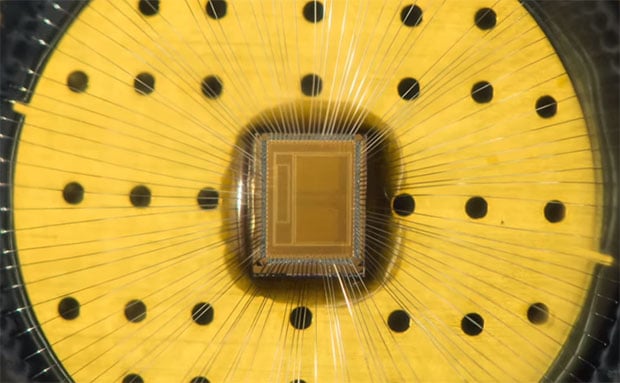IBM’s 3-bit Phase-Change Memory Boots Smartphones In Seconds, Survives 10 Million Write Cycles
The words "memory" and "breakthrough" are put together quite often, but unfortunately, it's actually pretty rare when we hear about such advances making it to market. Part of the reason for that is that some of these breakthroughs are so bleeding-edge, it's just not reasonable to expect them to hit the market that quickly.
Based on what we're hearing from IBM's latest breakthrough, though, it doesn't seem like this is one of those advancements that will soon be forgotten. In its announcement, IBM talks about 3-bit phase-change memory that can endure "at least" 10 million write cycles - quite a gain over a USB flash drives' ~3,000 write cycle lifespan.

It's not just lifespan that makes this phase-change memory alluring. There's also the fact that unlike DRAM, memory stored in PCM isn't lost when the device is shut down. This is both a great and bad thing, depending on your viewpoint, as you'd never want sensitive data to be lying around unencrypted on frequently accessed memory.
Because of its speed, IBM suggests that this 3-bit PCM could be used as a super-fast cache, rather than a replacement for typical NAND flash. Whereas solid-state drives in desktops and notebooks have replaced mechanical storage, IBM's PCM could result in NAND flash becoming a second-class citizen.
What such implementations would mean to the end-user is crazy fast OS performance on their mobile devices. Today, most phones will take a minute or more to fully boot into their OS. Imagine, then, turning on a phone and having it at the desktop in seconds. That'd be possible with PCM, per IBM's promises. Big Blue also comments on machine-learning; PCM is so fast that it could benefit those who need latencies to be cut down as much as possible, and bandwidth bolstered as much as possible.
When will we see this 3-bit PCM hit the market? IBM is keeping hush-hush on that right now. We can hope it'll arrive sooner rather than later, as its implementation could make our mobile devices feel just as fast as our desktops and notebooks - or perhaps even faster.

